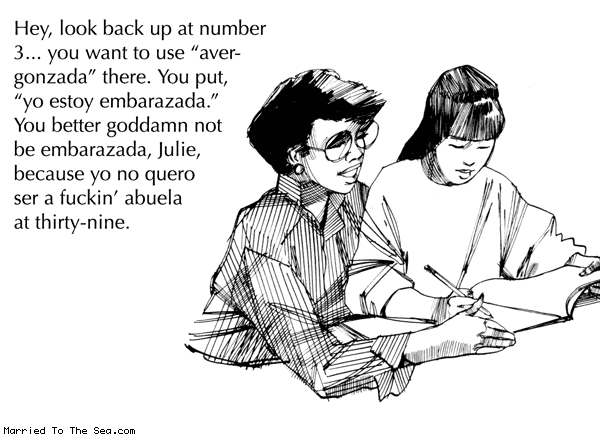Other graduate students are often shocked to find out that many history graduate programs require proficiency in a language other than English. I once deployed this knowledge bomb on a pretentious freak who tried to tell me that by studying American history I was making myself more narrow-minded. He was then forced to eat his shoe when it was revealed that he could only read English and OH OH OH the history graduate student habla Español! Who's narrow-minded now?
...and, I'm back. Anyway, the way departments test this proficiency varies, but usually is accomplished through a little thing called The Language Exam, where you have to translate somewhere between a hundred and a bajillion words into English. Now when I think of the language exam, this comes to mind:

On any given day I remember the weirdest words in Portuguese ("lagarto" means lizard!) but not the words particularly useful for historical endeavors like, say, "century" or "old". This is the reason The Language Exam drums up such fear: because as children we spent years learning how to ask for a red tee-shirt or "where is the discoteque", but never did we learn what "the history of the fur trade is especially challenging due to the lack of preserved documents" might look like in French.
Nonetheless, languages are important to the study of history, and so we make new flash cards. No longer interested in the word for duck (pato!), we instead turn our attention to what I like to call "history words" -- author, argument, sources, American Revolution, demonstrate, and 'flesh out'.
So here's to everyone going through The Language Exam! Frankly, as long as you don't write "pregnant" when you mean "embarrassed", you're doing okay!

No comments:
Post a Comment